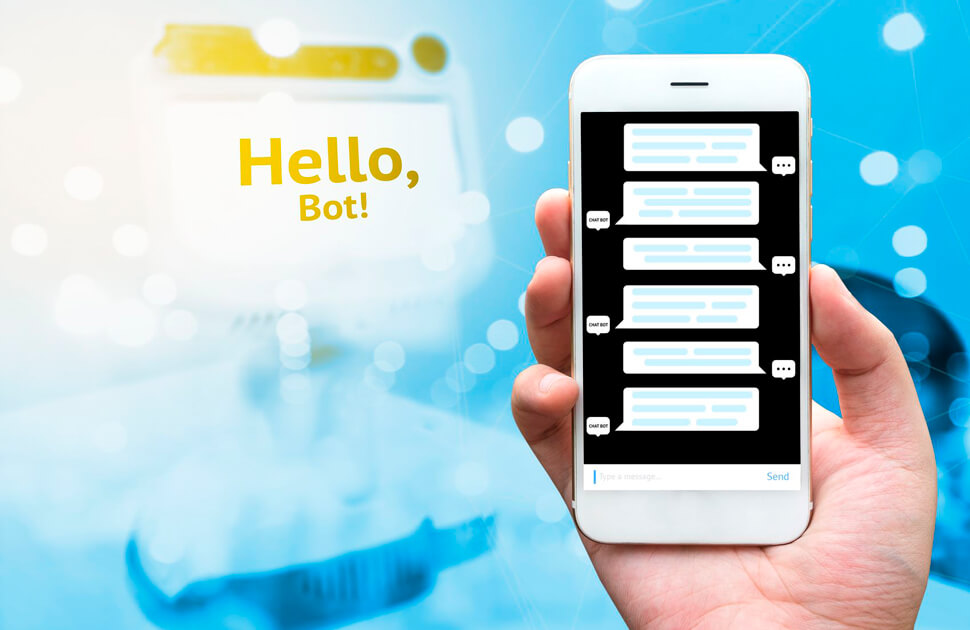Customer experience has become so important in the strategy of companies in recent months that 2016 is already considered as the “year of conversational commerce”. So far, it was the human factor that played a key role in customer service, but a new technological revolution, the result of Artificial Intelligence, seems to have come to stay: the chat bots. With users increasingly more demanding and accustomed to the immediacy, how will the bots influence in the field of customer service?
Origin and concept of chat bots
Chat bots or bots are not emerging technologies. In fact, its origin dates back more than 50 years ago, when the British mathematician Alan Turing discovered the principles that today allow the performance of modern computers and Artificial Intelligence. One of the first chat bots was Eliza, created in 1966 and that essentially used the same basis of many modern chat bots whose purpose is to give humanlike responses. However, bots have experienced a recent upswing thanks to the boom of messaging, because it is artificial intelligence software capable of acting on “own initiative” without human intervention, which could revolutionize the segment of the customer service in businesses and consumer interactions.
What are the bots’ benefits for businesses and customer service?
- Allow providing an omnichannel customer service via phone, chat, email, social networks, instant messaging…
- Chat bots can be operational 24 hours a day, 7 days a week, 365 days a year.
- Bots enjoy a high response speed and can serve multiple clients simultaneously.
- Bots are multilingual, so they can serve customers in the same language in which they make their queries.
- Facilitate the decongestion of contact centers responding to simple questions, so that agents can focus on value-added questions.
- They allow recording and storing essential data that companies can use to personalize the user’s shopping experience and optimize product development.
- Increase the competitiveness of small businesses, as chat bots that perform routine tasks become “additional employees”, while people can work on strategic tasks that drive to the business’ growth.
- Open the door to new interfaces based on conversation which continuous feedback can be used by companies to optimize their websites faster.
- Improve customer relationships with brands, while interaction based on the conversation generates a sense of connectedness.
- They help increase personalized marketing and therefore also sales, as the data collected by chat bots can be used to create highly effective campaigns to improve customer loyalty.
Why chat bots represent a revolution in customer service and contact centers?
The answer to this question is found in each and every one of the benefits mentioned above. However, if we focus on customer service and contact centers, the key lies in the fact that the automation of chat bots can be combined with human experience thus achieving outstanding customer experience.
Chat bots are not yet able to empathize with people or “think” beyond that for which they have been programmed, but they can provide simple answers, perform repetitive tasks, qualifying contacts and direct them to the appropriate operator or agent… In this way, they can address simple questions, easing contact centers and allowing people to focus on addressing those interactions for which their intervention is an added value. At the same time, other people can work on improving chat bots in order to improve more the experience. In addition, essential data collected by bots will help companies to improve their customer services.
This implies a true revolution that results in an increase of efficiency, effectiveness, productivity and sales.
Major industries in which chat bots have arrived to radically change the customer experience
Improving the customer experience is an evidence provided by chat bots, hence their presence is growing in areas as diverse as catering and retailing (place orders, book a table, make payments…), health industry (providing answers to questions for which you do not need a doctor), information (showing users the latest news), ecommerce (opening new sales channels through users’ favorite apps such as Facebook or Twitter), the fashion industry, finance, exercise and physical activity, etcetera.
Are bots better for baby boomers or millennials?
A recent consumer study carried out by myclever reveals that baby boomers’ generation sees more benefits in implementing chat bots when it comes to call quality service, than the so-called millennials.
The continued prevalence of social media presents enormous opportunities to connect with the generations of the new millennium through chat bots. In fact, 42% of respondents said they prefer not to carry out a face-to-face communication if they can avoid it.
As for gender, women showed greater willingness to use chat bots in all sectors raised, especially shopping, problem solving and choice of services.
In conclusion, although chat bots must still improve a lot in the direction of acquiring more “human dimension”, the numerous benefits provided mainly in instant messaging services, together with the willingness of consumers, they are driving their adoption in various business and industry sectors. However, the human factor is still essential in customer service because, for now, chat bots focus on solving simple and concrete queries.
 Subscribe
Subscribe
 Ask for a demo
Ask for a demo

 4 min
4 min
